Understanding Veganism: A Transition from an Omnivorous Diet
Veganism, a plant-based diet void of animal products, is a dietary choice gaining popularity for a multitude of reasons, including health, animal welfare, and environmental concerns. This lifestyle differs from a vegetarian diet, which typically still includes dairy products and egg yolks. A well-planned vegan diet relies on a wide variety of fruits, leafy vegetables, and plant-based foods, excluding any animal sources such as meat, dairy, and animal byproducts.
Health Benefits of a Vegan Diet
Numerous studies, such as the prospective EPIC-Oxford study and the longitudinal AHS-2 study, have pointed towards the health benefits of a vegan diet. These include weight loss, lower body mass, and a lower risk of heart disease and chronic diseases. The key nutrients from plant sources, such as omega-3 fatty acids and a variety of essential nutrients, can contribute to heart health, lower blood pressure and cholesterol levels.
Vegan foods, including green vegetables, citrus fruits, and fortified foods, often have lower fat content than their animal-based counterparts, contributing to a healthier diet. The regular consumption of fresh fruit and vegetables can also help maintain healthy blood sugar levels, which is beneficial for people with diabetes.
The reduction in consumption of animal products and increased intake of plant-based foods can lower the risk of certain cancers. According to the World Health Organization, colorectal cancers are linked to high meat consumption, and vegans typically have lower cancer rates compared to meat eaters.
Nutritional Considerations in a Vegan Diet
While a vegan or plant-based diet can be the healthiest diet option for many, it requires careful planning to avoid nutritional deficiencies. Key nutrients typically derived from animal foods, such as Vitamin B12, iron, and certain fatty acids, need to be sourced from plant-based foods or vitamin supplements.
Nutritional yeast, for example, is a popular source of B12 among vegans. Iron, essential for the production of red blood cells, can be obtained from plant sources like leafy greens, sesame seeds, and fortified foods, although the human body absorbs this form of iron less efficiently. Combining these sources of iron with vitamin C-rich foods like citrus fruits or orange juice can enhance absorption.
Plant sources of proteins include legumes, whole grains, nuts, and seeds, along with meat substitutes made from soy or other plant proteins. Vegan sources of omega-3 fatty acids include flax seeds, hemp seeds, and canola oil.
Vegans also need to consider their intake of vitamin D, calcium, and iodine, which are crucial for bone health, thyroid hormones, and overall health, respectively. Fortified plant milks, such as almond and rice milk, and daily supplements can ensure adequate levels of these nutrients.
Pregnant women following a vegan diet need to be especially vigilant about their nutritional intake during pregnancy. Essential nutrients for fetal and brain development, such as folic acid and omega-3 fatty acids, must be included in diets during pregnancy. A control diet rich in whole grains, fresh produce, and fibrous vegetables can contribute to a healthy pregnancy and gestational weight gain.
Vegan Lifestyle: Beyond Diet
Veganism extends beyond diet into a broader lifestyle choice, impacting everything from clothing to cosmetics, with the goal of minimizing the use of animal byproducts. This includes avoiding products tested on animals or those containing components derived from the dairy industry, such as certain ice creams.
Adopting a vegan lifestyle also often involves reading food labels carefully and experimenting with vegan recipes to create satisfying, nutritionally balanced meals.
Environmental and Ethical Implications of Veganism
The environmental and ethical implications of veganism are considerable. It is well-documented that the dairy and meat industries have a substantial environmental footprint, contributing significantly to greenhouse gas emissions. A plant-based diet, on the other hand, generally requires less energy, land, and water resources, making it a more sustainable choice in the long term.
From an ethical perspective, veganism is often tied to concerns about animal welfare. Many vegans choose to eliminate animal products from their diet and lifestyle due to objections to practices in the meat and dairy industries. Opting for plant-based alternatives and meat substitutes can significantly reduce the demand for animal products and, therefore, potential animal suffering.
Veganism: A Personal and Public Health Choice
While vegan diets may not suit everyone, their benefits to personal and public health, the environment, and animal welfare are compelling. They can help manage body weight, reduce the risk of chronic illnesses and cardio-vascular disease, including ischaemic heart disease and haemorrhagic stroke, and lower the risk of cancer.
Moreover, a well-planned vegan diet can provide all the necessary nutrients for a healthy life at all stages. Essential amino acids, for instance, can be acquired from a variety of plant foods. Calcium bioavailability in plant foods is often comparable to that in dairy foods, and the daily intake of calcium can easily be met by consuming fortified plant milks and a variety of green, leafy vegetables.
It’s important to remember that any significant dietary changes should be made in consultation with a health professional. Nutritional needs can vary greatly depending on age, sex, activity level, and overall health. Regular check-ups can ensure that blood pressure, cholesterol levels, and other key health indicators are within a healthy range.
As the vegan movement continues to grow, so does the availability of resources and support. Websites like BBC Good Food offer numerous vegan recipes, while an increasing number of restaurants and food stores offer vegan options, making this lifestyle more accessible than ever.
In conclusion, adopting a vegan diet can be a powerful step towards a healthier, more ethical, and more sustainable lifestyle. However, like any significant life change, it’s vital to approach veganism in an informed, balanced, and mindful way. Remember to read food labels, vary your diet to include a wide range of plant-based sources, and seek medical advice when necessary. Through this, you can enjoy the many benefits of a vegan lifestyle while ensuring that your nutritional needs are met.



